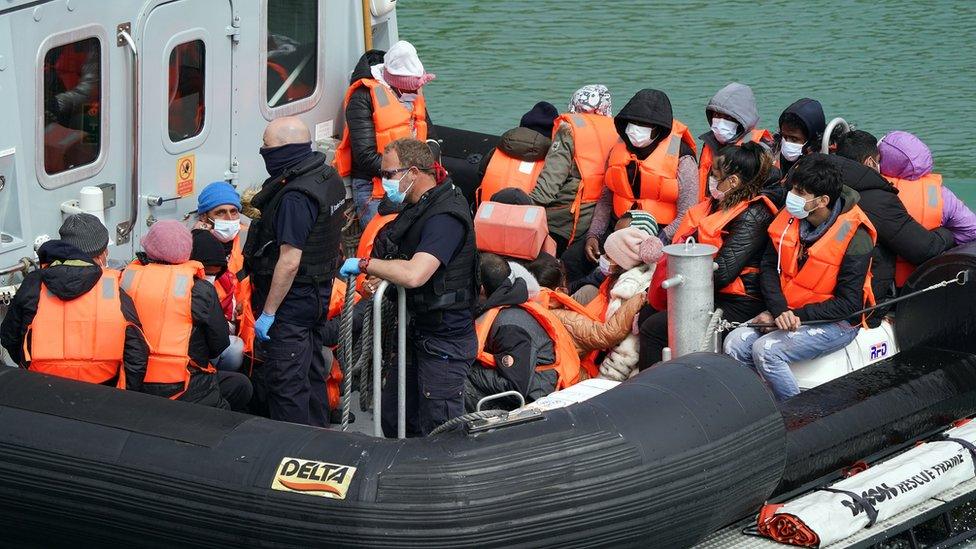Channel migrants: More than 600 people cross in one day
- Published
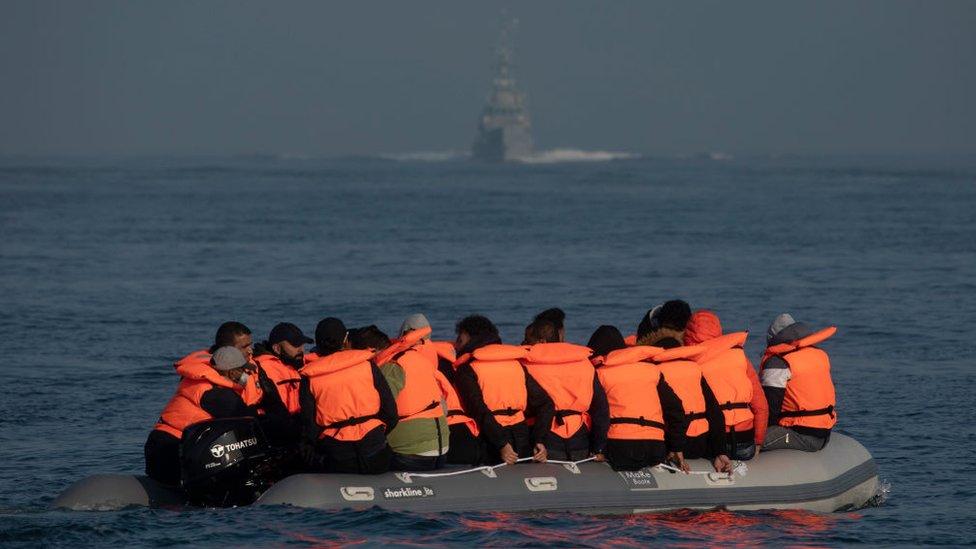
Twelve boats were detected crossing the Channel on Sunday
More than 600 migrants crossed the English Channel on Sunday, the highest number on a single day so far this year, the Home Office said.
Some 616 people were detected making the journey from France in 12 small boats.
The previous daily high for this year was 497 people on 22 April.
The total number of migrants making the journey this year is more than 8,000, which is about 2,000 less than at the same point last year.
Speaking in Dover last week, Prime Minister Rishi Sunak said his plan to cut the number of migrants crossing the Channel in boats was working and numbers were down for the first time.
Mr Sunak told BBC political editor Chris Mason that crossings were down by a fifth, and figures for Albanians heading to Britain were down by 90%.
At this point last year, the cumulative figure had just passed 10,000. The total number of crossings last year was 45,755.
'Premature'
Tim Loughton, MP for East Worthing & Shoreham, and a member of the Home Affairs Committee, said "we shouldn't read anything" into this latest figure "except we still have a problem".
Speaking to BBC Radio 4's Today programme, he suggested the wind in the Channel had not "worked" for crossings in the last few weeks, so "we may now see a surge".
But he said Mr Sunak's claim numbers were coming down was "premature".
He said the French needed to arrest people on the beaches, not just confiscate their boats, while the Home Office "has got to do far better" at turning around those people who do not have legitimate asylum claims.
He added: "We need to have properly-assigned safe and legal routes, so that legitimate asylum seekers can apply from overseas."
Mr Sunak has made reducing the number of Channel crossings a key part of his premiership, including via the Illegal Migration Bill.
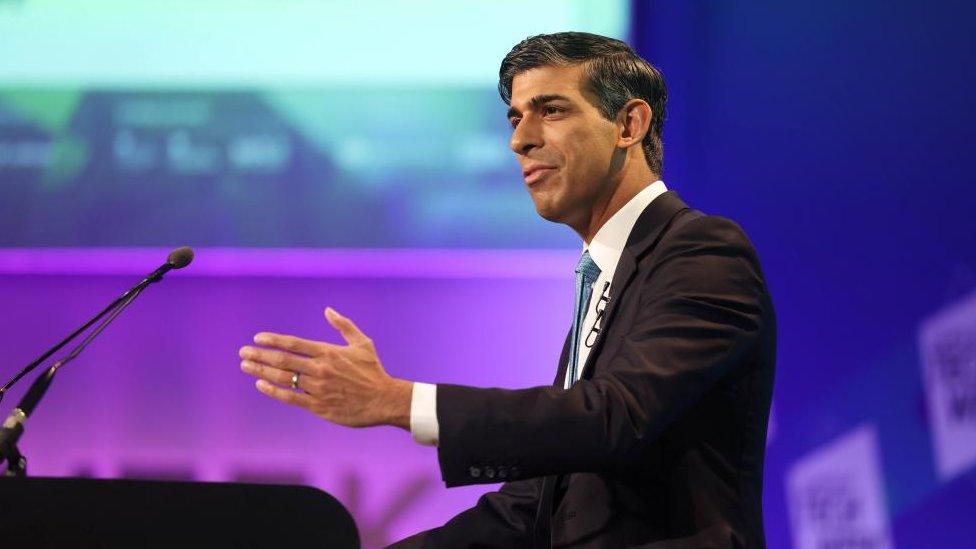
The plans would mean anyone reaching the UK without permission would be detained and promptly deported, either to their home country or a third country such as Rwanda.
The bill would create broad new detention and search powers, and migrants would be barred from claiming asylum. It would apply even if a person claims to be a victim of trafficking or modern slavery.
It has been heavily criticised by some campaigners, and the Joint Committee on Human Rights - which is made up of MPs and peers - said earlier this week it would breach a "number of the UK's human rights obligations".
While the bill has already passed in the Commons, it was strongly criticised on Monday in the House of Lords during a debate which ran into the early hours of Tuesday morning.
'Crossings are continuing'
Liberal Democrat Baroness Ludford said peers had been "abused, bullied and intimidated" by the government over the plans.
But Mr Sunak and government ministers say the tough measures are necessary to prevent people smuggling networks from profiteering from the dangerous Channel route.
Responding to Monday's crossings, a No 10 spokesperson said: "There is a great deal of work going on which is stopping these criminal gangs in their tracks.
"But, clearly, crossings are continuing and that is because we have not been able to put in place our full plans; and obviously there is a great deal of work across government to that end."
Labour's shadow immigration minister Stephen Kinnock said the PM "needs to roll up his sleeves and start doing the hard graft, rather than ploughing on with the headline-chasing, government-by-gimmick approach".
Additional reporting by Sean Seddon

Follow BBC South East on Facebook, external, on Twitter, external, and on Instagram, external. Send your story ideas to southeasttoday@bbc.co.uk
Related topics
- Published5 June 2023
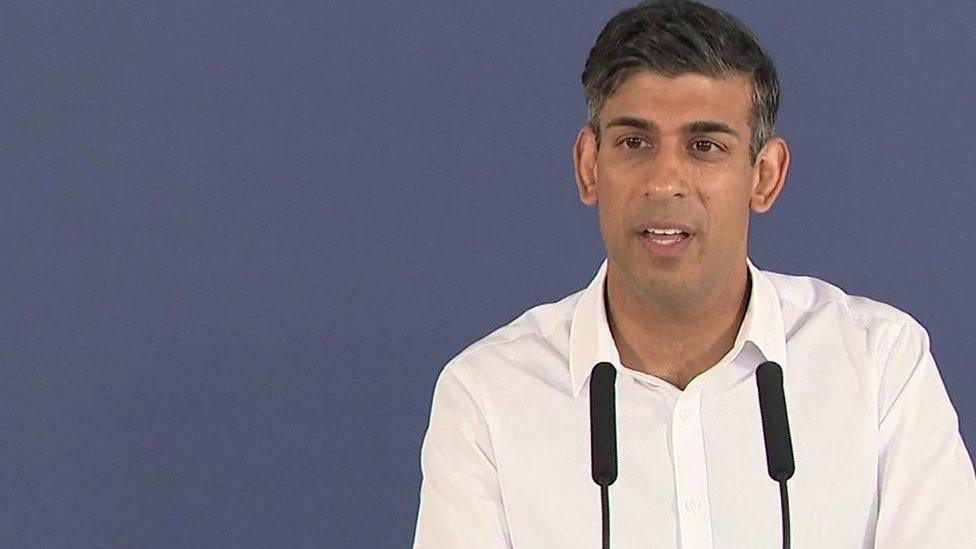
- Published5 June 2023
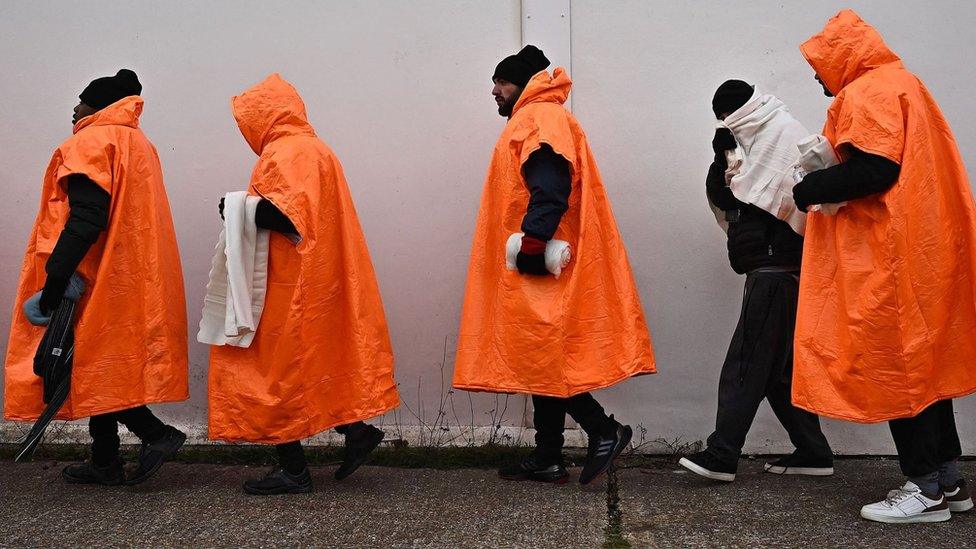
- Published16 May 2022
